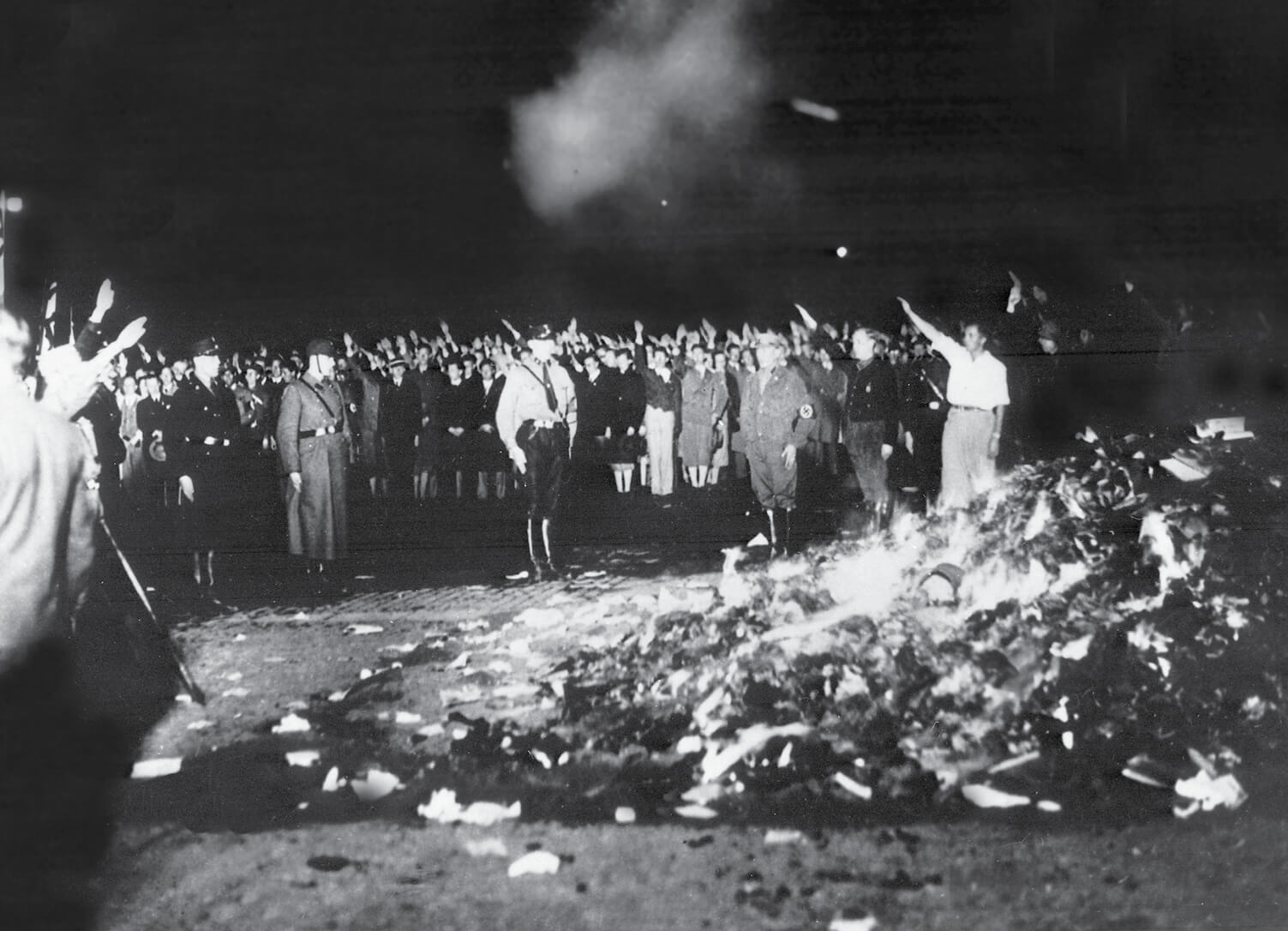The Fire of Literature
Sovereignty and the burning of the Book
Cecilia Sjöholm

Book burnings have a ritual side: sometimes they are performed as magic rites in which society is being cleared of filthy objects. In France, the manuscript of the Marquis de Sade’s Les Journées de Flourbelle disappeared in flames, at the initiative of the police and the author’s own son, both intent on protecting the family honor.[2] In the early 1920s, the US postal service—dedicated to the country’s “clean books” campaign—felt the need to obliterate James Joyce’s Ulysses, torching several hundred copies in response to the book’s obscenities, such as intercourse and toilet visits.[3] Book burnings may also establish ritual relationships. Harry Potter books were burned by church groups in a number of American towns in 2001 and 2003 as a rite that affirmed their members’ allegiance to Christ even as it rebuked the books’ occultism.[4]
Freud’s anxiety at being burned was compensated only by a sense that he had been chosen for all the right reasons. The list of authors that burned in Berlin in 1933 was not arbitrary but set in motion by Goebbels as an “act of cleansing,” of ridding Germany of Jewish, Marxist, and pacifist authors. “At least I am in great company,” Freud said.[5] Albert Einstein, André Gide, Maxim Gorki, Ernest Hemingway, Erich Kästner, Helen Keller, Jack London, Thomas Mann, Marcel Proust, H. G. Wells: the list goes on. The principles for the “Cleansing of Public Libraries” campaign, drafted by librarian Wolfgang Herrmann, concluded that the cleansing was to be done in one of two ways. With some books, all copies were to be destroyed in an auto-da-fé. With others, a single copy (surprisingly, Lenin, for instance) was to be preserved in a so-called poison cabinet to be established at large city and university libraries. Herrmann determined that a third category should be created for books whose ultimate fate (fire or poison cabinet) remained to be determined. To the first group belonged writings that, among other criteria, served “the egocentric pleasure of the individual.”[6] In other words: sexuality.